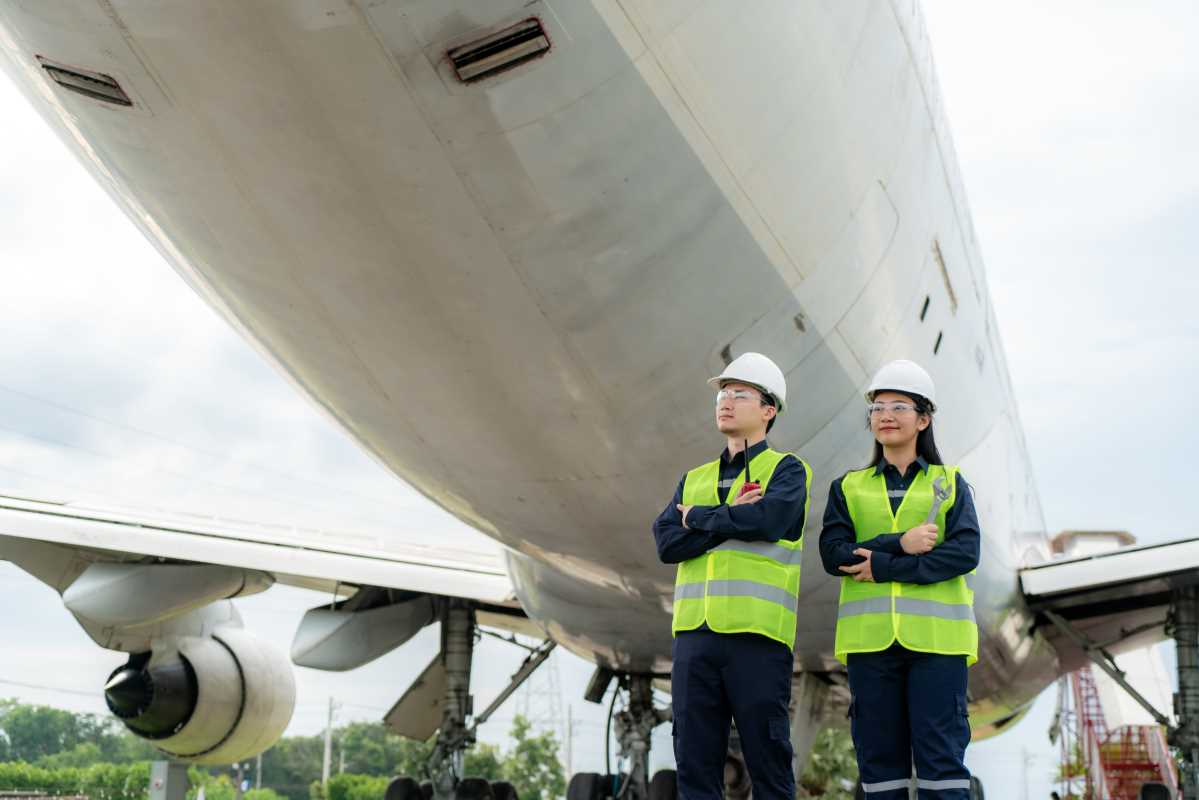Aerospace engineering is a field that combines creativity, precision, and advanced technological understanding to design and develop aircraft, spacecraft, satellites, and more. It is a profession that appeals to individuals passionate about pushing the boundaries of human innovation. However, breaking into aerospace engineering requires a strong educational foundation, practical experience, and strategic career planning. For aspiring aerospace engineers, higher education serves as the launching pad to develop the necessary skills, build networks, and gain hands-on experience in this challenging yet rewarding field.
Understanding Aerospace Engineering
Aerospace engineering is divided into two primary branches: aeronautical engineering, which focuses on aircraft that operate within Earth's atmosphere, and astronautical engineering, which deals with spacecraft that travel beyond the atmosphere. Both fields require a solid understanding of physics, mathematics, and material science, as well as expertise in areas like propulsion systems, fluid dynamics, structural design, and avionics.
The industry spans a range of sectors, including commercial aviation, defense, space exploration, and emerging technologies like drones and urban air mobility. Aspiring engineers need to be prepared to work in multidisciplinary teams, where collaboration and innovation are key to addressing complex challenges.
Pursuing Higher Education in Aerospace Engineering
Higher education is the cornerstone of a successful career in aerospace engineering. Most roles in the field require at least a bachelor's degree, and advanced positions often demand a master's or doctorate. Programs in aerospace engineering are designed to provide both theoretical knowledge and practical skills.
Bachelor’s Degree: Undergraduate programs typically cover foundational topics like aerodynamics, propulsion, materials science, and systems engineering. Students gain experience through laboratory work, computer simulations, and design projects, often culminating in a senior capstone project. Universities with strong aerospace programs, such as the Massachusetts Institute of Technology (MIT) or Purdue University, provide state-of-the-art facilities and industry connections.
Master’s Degree: A master's degree allows students to specialize in areas like propulsion systems, spacecraft design, or control systems. This level of study often includes research opportunities and collaboration with industry partners, making graduates highly competitive for specialized roles.
Doctorate (Ph.D.): For those interested in academia or cutting-edge research, a Ph.D. in aerospace engineering is essential. Doctoral students focus on advancing knowledge in specific areas of the field, often working on projects that contribute to industry innovation.
Skills and Knowledge Developed Through Higher Education
Aerospace engineering programs are designed to develop a wide range of skills and knowledge critical for success in the field:
- Technical Proficiency: Proficiency in tools like MATLAB, CATIA, and computational fluid dynamics (CFD) software is emphasized in most programs.
- Problem-Solving Abilities: Students learn to address real-world challenges, such as optimizing fuel efficiency or improving structural integrity.
- Team Collaboration: Engineering projects require teamwork, reflecting the collaborative nature of the industry.
- Project Management: Students are often responsible for managing timelines, budgets, and resources for their projects, preparing them for professional responsibilities.
Gaining Hands-On Experience
Practical experience is essential for breaking into aerospace engineering. Many programs include co-op or internship opportunities with leading companies like Boeing, Lockheed Martin, or SpaceX. These experiences allow students to apply their knowledge in real-world settings, build professional networks, and gain insight into industry operations.
Participation in student organizations, such as the American Institute of Aeronautics and Astronautics (AIAA), provides additional opportunities to work on team projects, attend conferences, and engage with professionals in the field.
Many universities also offer access to research facilities, such as wind tunnels, flight simulators, and satellite labs, where students can participate in groundbreaking projects. Working on these projects not only enhances technical skills but also demonstrates initiative and expertise to potential employers.
Higher Education for Career Success
Breaking into aerospace engineering requires more than academic achievement. Strategic career planning and professional development are equally important.
Networking: Building relationships with professors, industry professionals, and alumni can open doors to job opportunities and mentorship. Attending job fairs, conferences, and workshops is an effective way to connect with potential employers.
Certifications and Licenses: Obtaining certifications, such as the Fundamentals of Engineering (FE) and Professional Engineer (PE) licenses, can enhance job prospects and demonstrate technical expertise.
Showcasing Projects: Employers value hands-on experience, so showcasing design projects, research work, and internships on resumes and in interviews is crucial.
Staying Updated: The aerospace industry evolves rapidly, with advancements in areas like artificial intelligence, renewable energy, and space exploration. Keeping up with these trends through continuous learning and professional development is vital for long-term success.
Emerging Opportunities in Aerospace Engineering
Aerospace engineering offers diverse career opportunities, from designing commercial airliners to developing spacecraft for Mars missions. Emerging technologies like electric propulsion, autonomous flight systems, and space tourism are creating new avenues for innovation and specialization.
The rise of private space companies, such as SpaceX and Blue Origin, has also expanded the field, offering exciting opportunities for engineers with expertise in rocket propulsion, satellite systems, and orbital mechanics. For those passionate about sustainability, areas like green aviation and biofuel development provide meaningful ways to make a positive impact.
By leveraging higher education, hands-on experience, and strategic planning, aspiring aerospace engineers can navigate this challenging field and contribute to the groundbreaking advancements that define aerospace engineering.







